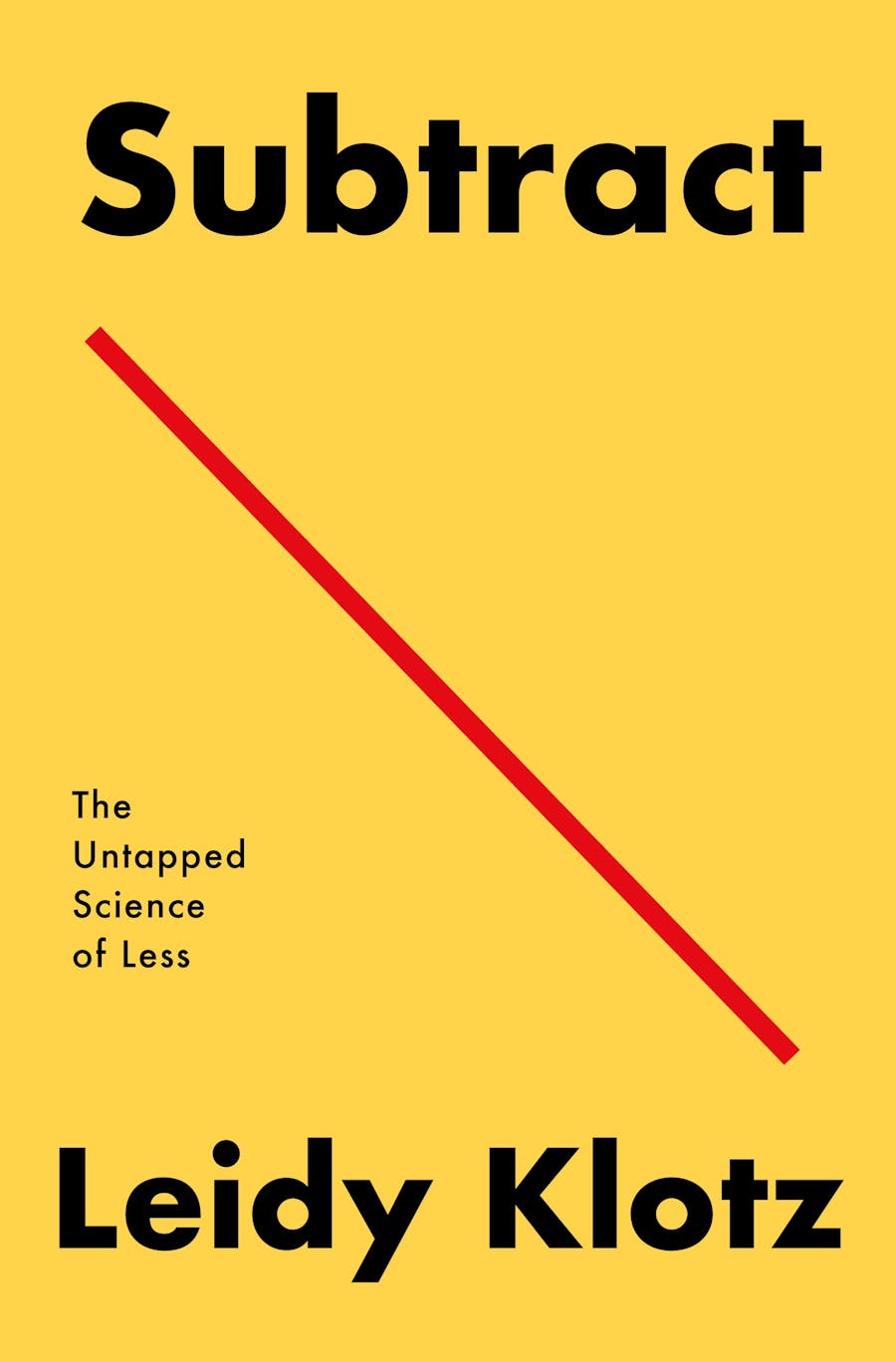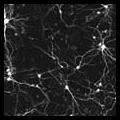mycorrhiza reviewed Subtract by Leidy Klotz
A gentle introduction to degrowth for liberals?
4 stars
Not all popular science books are created equally. The best of them are written by scientists describing the body of knowledge to which they themselves have contributed. Hawkins’s A Brief History of Time helped define the genre (though of course there were important antecedents); my favorite book from 2021, David Graeber & David Wengrow’s The Dawn of Everything, is an example from the humanistic side of the social sciences.
Leidy Klotz’s Subtract (“the Untapped Science of Less”) begins by describing a fascinating series of psychology experiments that systematically tested a hypothesis that Klotz had articulated: people tend to solve problems by adding things (Lego bricks in the first experiment, but also other things, including ingredients in recipes and words in text) when subtracting things would work as well or better. Klotz argues that “subtraction neglect” is a form of cognitive bias that influences much of our thinking, to our detriment. …
Not all popular science books are created equally. The best of them are written by scientists describing the body of knowledge to which they themselves have contributed. Hawkins’s A Brief History of Time helped define the genre (though of course there were important antecedents); my favorite book from 2021, David Graeber & David Wengrow’s The Dawn of Everything, is an example from the humanistic side of the social sciences.
Leidy Klotz’s Subtract (“the Untapped Science of Less”) begins by describing a fascinating series of psychology experiments that systematically tested a hypothesis that Klotz had articulated: people tend to solve problems by adding things (Lego bricks in the first experiment, but also other things, including ingredients in recipes and words in text) when subtracting things would work as well or better. Klotz argues that “subtraction neglect” is a form of cognitive bias that influences much of our thinking, to our detriment.
After describing this research, the book becomes less empirically grounded, but remains interesting. The book offers examples of designers who created striking works and activists who effected important change by employing subtraction. Naturally, the book eventually addresses climate change.
Here’s where things get interesting, and why I’m excited about this book. Without naming “degrowth”, or even directly invoking its key concepts (e.g., we must actively shrink the economy to bring greenhouse gasses down to a level that will allow the planet to sustain a human population close to the current one), Klotz asks the question: “can we stop climate change by subtracting instead of adding”? By the time the book reaches this point, I expect that most of the audience — presumably consisting primarily of educated liberal-but-not-leftists — will think so. This is terrific news, because as it happens, we must indeed actively shrink the economy to bring greenhouse gasses down to a level that will allow the planet to sustain a human population close to the current one.
Anyone who has tried using this messaging during a conversation with the average liberal knows that this it goes nowhere. But now? Well, we have a well-documented phenomenon — “subtraction neglect” — and a fascinating, easy to understand set of experiments that conclusively show that “people systematically default to searching for additive transformations, and consequently overlook subtractive transformations” even when subtractive transformations work better. If people can accept this, well, now we’ve established an excellent starting point to talk about what “shrinking the economy” could look like.
So I look forward to using this book to as a way to start talking about degrowth with people who might otherwise be skeptical of the concept. I invite you to do the same. If you don’t have time to read the book, check out the article Klotz published with his colleagues in Nature (DOI: 10.1038/s41586-021-03380-y). But if you’re simply in the mood to read a popular science book, or give one as a gift, I can endorse Subtract.

